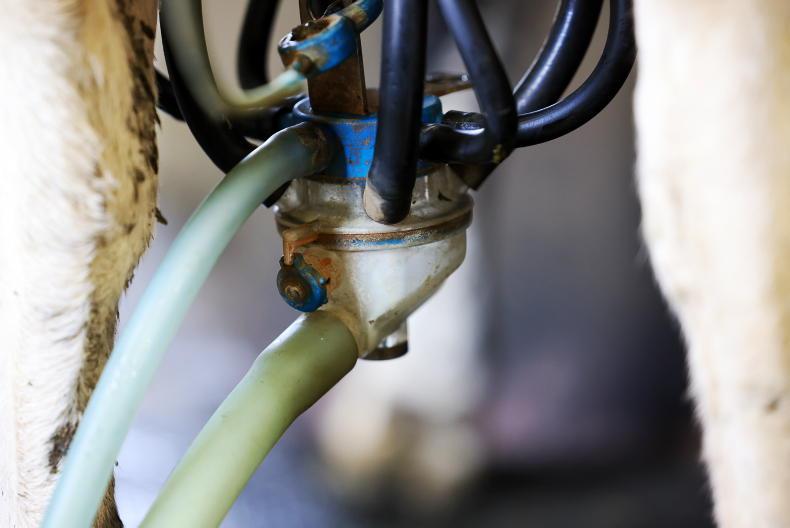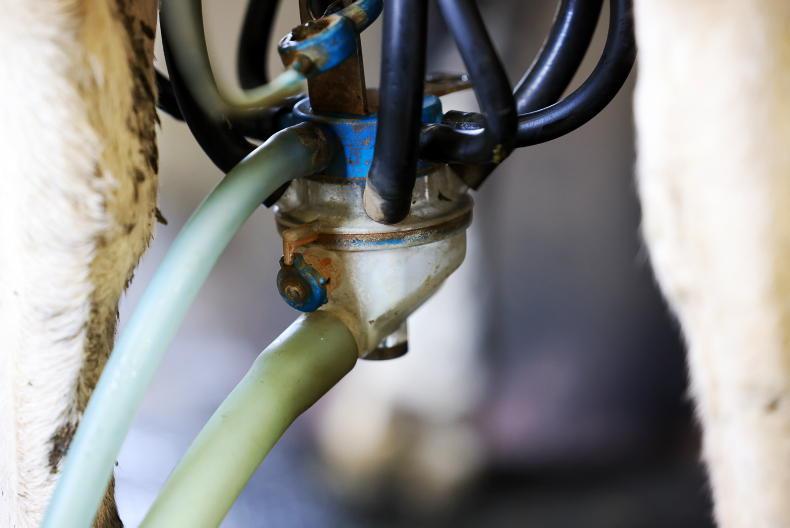The former NFUS vice-president, Scottish Natural Heritage (SNH) board member and Aberdeenshire councillor is “steeped” in agriculture, having farmed or been involved in cereals, dairy, beef, pigs and poultry. Chapman is now rural economy secretary, Fergus Ewing’s shadow opponent in the Scottish parliament’s Conservative contingent. It is, he says, “an exciting time to be in politics”.
Optimism
Chapman became an MSP after campaigning for Scotland to remain part of the UK and having only been seated briefly in the Scottish parliament, voted for the UK to stay in the EU. He firmly believes in respecting the referendum result, however, and that farming and the nation must use Brexit as an opportunity for improvement and change: “You have to be optimistic,” says Peter.
Top of the Brexit priority list is trade: “Especially for the sheep industry, which is particularly vulnerable. We were told there would be a bright new world after Brexit, but my fear is that we open up the agricultural industry to unfair competition, with for example, hormone-treated American beef. I worry that being desperate to do deals for other industries, agriculture gets pulled through, our standards are undermined and therefore we can’t compete.”
Need for farm support
Closer to home – politically speaking – Chapman is positive about the prospects of changing agricultural support systems: “There is huge uncertainty with Brexit, but the CAP systems have been unsatisfactory, with lots of strings and red tape. My focus is to try to devise a system which reflects the needs and systems of the Scottish industry.
“Now we have assurance from the Westminster government that the same levels of support will be available until 2022. It takes a lot of pressure off.”
And Chapman does not doubt the need for future support.
That is vital. We can devise something more suited, simpler to claim and direct money to people producing high quality food and looking after the natural environment. The details of that are to be worked out, but I think we can do things better and move the industry forward.”
Power should return to Westminster in the first instance, Chapman believes.
“I see a need for an overarching UK structure in the first place. We already had a different system of support, but we’ve always had the EU structure in place, within which Scotland has been able to tweak and do its own thing. By far and away the most important thing is the internal UK market. We can’t have separate rules and regulations.
“I disagree with the SNP on the power-grab issue and that all powers should come straight to Holyrood. To me it’s another way of beating Westminster over the head. We need to be positive and get on board and drive a good deal.”
Profitability
We can’t just expect a no-glitch CAP-like support system, however: “Environmental stuff is going to be important if we’re going to expect support from the general public,” Chapman says. “It has to be there and rightly so. I don’t speak to anyone [farmer] who doesn’t recognise the environment is vitally important.”
Where consumers might want to uphold high environmental standards, they will have to face up to the need to support the industry too. Chapman is a staunch promoter of agricultural efficiency, technology and targeted inputs; indeed he wants to get involved in driving the industry forward in this regard, however, the industry cannot manage without support.
“I am passionate about getting a better share of the end price,” Chapman affirms. “Food has never been so cheap, but the average profitability for the average farm has been dropping for the last five years. It is absolutely unacceptable for the money invested and the hard work.’’
Computer scandal
Even while support is available at current levels, Chapman has been horrified by the Scottish computer system’s failure to distribute them effectively. “It’s been pretty scandalous from start to finish. To be fair to him, Fergus Ewing inherited a mess, but the very first thing he said [when he was appointed cabinet secretary] was ‘this is my priority and I will make it right.’ Eighteen months on and he still hasn’t made it right.
“We’ve not had satisfactory committee sessions with Ewing. I accept it is improving, but they’ve still had to introduce a loan scheme, which tells us it’s still not fit for purpose.
Chapman cites an example from his north east constituency: “One farmer, in particular, young, he’s only been farming for three years. He took the farm over from his father and there has been a mix-up with acreage for the whole of that period.
‘‘He’s been fighting desperately to get money into his basis. He needs money more than most. It’s bloody frustrating. The latest word is that he could do it manually but the computer still can’t do it. He’s hard working, a good lad trying his damndest.
“That brings it home, when you bring it down to the realities of a farming family around the table with a pile of bills. The worry, you can’t imagine.
“Driving through Aberdeenshire you can see that this harvest has been an absolute trial in the north east. There are fields up here cut to bits, with combine tracks two feet deep. The industry is struggling.”
Farmer or politician
Weighing up farming versus political life, Chapman says, “You need to have a fair amount of energy for both. I’m used to seven-day weeks and long days, but politics is a full-on job. It’s an enjoyable job; you have to be a good listener and remember the constituents who voted you in can also vote you out.”








SHARING OPTIONS